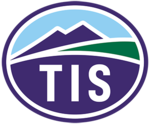Mission
WHO are we?
Our mission describes the nature of our school community and serves as the basis for our school programmes. It also informs our day-to-day interactions with each other.
Tsukuba International School
A compassionate learning community,
centered in nature,
celebrating diversity, equity, and opportunity
Vision
WHAT are we aiming for?
Our vision describes our identity as a school and serves as the basis for our strategic planning.
Tsukuba International School is a small school that uses an “at home” approach to deliver a world-class education in a natural environment.
The school fosters its noted strengths, including its highly professional teachers, its location in Tsukuba Science City, and its strong community spirit to reach its goals.
Pledge of Non-Discrimination
Tsukuba International School is an equal opportunity educator and employer. We will not discriminate against any student, prospective student, employee, or job applicant on the basis of race, color, gender, nationality, national origin, age, religion, creed, disability, sexual orientation, gender identity or gender expression. We will take measures to ensure against such discrimination in all of our services and practices.
Definition of International Mindedness
At Tsukuba International School, we believe that international-mindedness is:
- understanding, accepting, and celebrating human diversity
- having a sense of our own identity while respecting others, regardless of their cultures, beliefs, or values
- engaging with the global community to gain a variety of perspectives and to foster a belief in our shared humanity and guardianship of the planet
- being able to communicate with empathy and compassion, by speaking with our own voice and listening with an open mind
- being a responsible global citizen by making a contribution and taking action to make the world a better place for all
Definition of Wellbeing
At Tsukuba International School, we make wellbeing a priority through our healthy choices. We seek peacefulness and balance in our daily lives through reflection, practicing gratitude as an action, and setting personal, academic, and professional goals and boundaries. We aim for progress, not perfection.
School-Wide Learning Objectives
WHY are we here?
Our school-wide learning objectives describe the kinds of students we want to graduate from our school.
Our students learn:
- to be critical thinkers in order to foster peace and understanding
- to be creative thinkers in order to find innovative solutions to problems great and small
- to demonstrate integrity in all interactions in order to foster trust
- to become ethical stewards of our shared resources
- to communicate and collaborate in order to make a positive contribution to their communities
Definition of Hiqh Quality Learning and Teaching
This is what high quality learning and teaching looks like at Tsukuba International School.
Learning
- Learning is contextualised in authentic experiences which helps students make connections between their learning in different subject areas.
- There is sufficient breadth and depth in the content in order to develop lasting and transferable conceptual understandings.
- Students engage in purposeful and meaningful inquiry, which is relevant, engaging, and connects to students’ own experiences.
- Learning is rooted in local and global contexts and helps students develop an internationally-minded perspective.
- Challenging and ambitious learning goals are set for all students. There is the expectation that all students can be successful and will perform at high levels of learning.
- Students work collaboratively with others, with an emphasis on effective teamwork and joint problem solving. Flexible grouping and regrouping strategies allow students to experience success working in a group and maximise individual strengths.
- Students are given responsibility for their own learning and are active participants in assessment, planning, goal-setting, review and feedback.
- Students are provided with choice, are able to explore their own personal preferences and interests, and have the opportunity to express themselves creatively.
- Learning takes place in a classroom environment that is inviting, engaging and inspiring.
Teaching
- Teachers actively create opportunities for students to experience and develop agency and take meaningful action.
- Teachers are role-models for their students. They maintain high-standards of ethical behavior. They are passionate and knowledgeable about their subject and encourage their students to be passionate too.
- Teachers are reflective practitioners. They work collaboratively with colleagues to develop, review and evaluate teaching strategies and programmes. They are always looking for new ways to improve student outcomes.
- Teachers are lifelong learners. They actively engage with planned professional development, stay up-to-date with the latest developments and implement research-based practices/strategies to teach the curriculum and address student learning needs.
- Teachers plan thoughtful learning sequences which scaffold students to greater understanding and mastery.
- Teachers select and create a wide range of resources, including authentic use of ICT.
- Teachers apply a differentiated approach which is guided by thorough assessment of individual student needs. They make use of a range of assessment strategies and student data, including learning support plans and professional reports, to provide accommodation, modify instruction, and target content at appropriate levels, including providing more challenge for those who need it. They take part in assessment moderation activities with colleagues to ensure fair assessment practices.
- Teachers create opportunities for parents to participate in their child’s learning. They communicate regularly with parents and keep them well informed of their child’s progress.
- Teachers create a safe, structured, inclusive, supportive and collaborative classroom climate conducive to learning.
